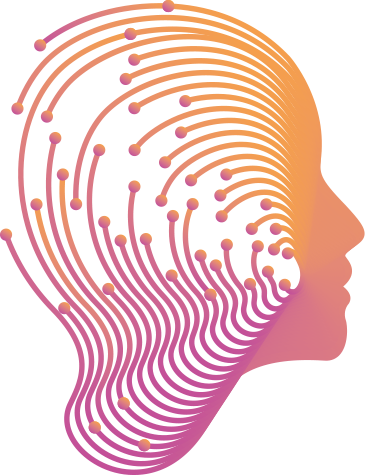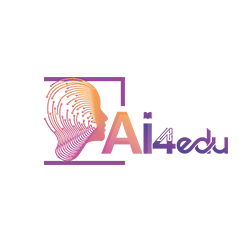Results
Publications
- Paper at the 17th annual International Conference of Education, Research and Innovation, Seville (Spain), 11th – 13th of November 2024
Presented by Hamam Mokayed (LTU). Title: Enhancing Educational Chatbots with Retrieval-Augmented Generation Systems. ICERI is an annually held conference where academics and teaching professionals gather to share perspectives and learn about the latest developments in education and innovation. The conference brought together 900 delegates who had the opportunity to attend oral and poster presentations, interactive workshops and plenary sessions delivered by world experts. Abstracts and papers presented at the conference were compiled in the ICERI2024 book of proceedings. Link: https://library.iated.org/view/MONTEIRO2024ENH
- Presentation at the Hellenic Artificial Intelligence Society workshop, Athens, 15.02.2025
Presented by Spyridoula Stamouli (ARC) in the conference “Advancements in AI and Impacts on Science and Education” organized by the Hellenic Artificial Intelligence Society and the Hellenic Cognitive Science Society. TM and SB were demonstrated to around 40 attendees, members of the research community, educators, and policy makers. Link: https://www.eetn.gr/imerida-exelixis-tis-texnitis-noimosinis-kai-epiptoseis/
- Collective paper at the 2025 ISDDE Conference, 19th – 22nd May, Expansive Design Across Borders, Cultivating Joy in Learning, University of Galway, Ireland
Presented by Ó Murchú (DEC). Title: Expansive Design Across Borders: AI-Powered Education and Organisational Psychology to Cultivate the Joy of Learning Among Migrant and Minority Communities in Ireland. This paper examines the transformative potential of AI-enhanced educational tools in fostering inclusive learning environments for migrant and minority students. Drawing upon empirical data from the AI4EDU initiative in Ireland, we analyse how AI-powered platforms—TeacherMate and StudyBuddy—have supported and are continuing to support Ukrainian refugees, African migrants, and Roma/Traveller communities in overcoming educational barriers. We also highlight the crucial role of organisational psychology in shaping supportive institutional cultures and effective team dynamics, enhancing both the design and sustainable implementation of AI solutions. Our findings reveal a paradigm shift in educational design, challenging traditional notions of classroom boundaries. We demonstrate how culturally responsive AI(4EDU) tools, when implemented effectively, can mitigate educational disparities by providing personalised learning pathways that honour students’ diverse cultural and linguistic backgrounds while maintaining high academic standards. This research aligns with the UNESCO AI Competencies framework and the EU AI Act (Articles 4 & 5), ensuring AI adoption remains ethical, transparent, and in compliance with global governance standards. By focusing on student agency, cultural pride, and engagement, the study showcases AI’s potential to cultivate joy in learning while maintaining rigorous academic expectations. Link: https://sites.google.com/view/isdde2025/workshop-and-paper-schedule/tuesday-pm
- Collective paper at the 16th Conference of The European Science Education Research Association, Copenhagen, Denmark, 25-29 August 2025
Presented by T. Karafyllidis (UCY). Title: Investigating the Perceptions of AI-Powered Applications in Science Education: A TAM-Based Study. The rapid integration of Artificial Intelligence (AI) in education offers transformative opportunities to enhance teaching and learning practices in science education. This study investigates the usability and acceptance of two newly developed AI-powered applications, a platform for streamlining teachers’ instructional practices and a conversational assistant for supporting students’ self-study routines, using the Technology Acceptance Model (TAM) as a guiding framework. Hands-on workshops were conducted across four European countries, engaging 117 participants (32 teachers and 85 students) who evaluated the applications through TAM-based questionnaires assessing Perceived Ease of Use (PEOU), Perceived Usefulness (PU), Attitudes Toward Use (ATU), and Self-Efficacy (SE). The findings reveal that both groups rated the applications positively across all TAM factors, indicating broad acceptance. However, PU received the lowest scores, highlighting the need to better align the applications with specific educational needs. Teachers demonstrated significantly higher ATU and SE scores than students, reflecting greater enthusiasm and confidence, underlying the need for tailored training to bridge confidence gaps. These results have important implications for the adoption of AI tools in science education, emphasizing the need for user-centric design, targeted training programs, and further exploration of long-term adoption trends. This study contributes to the growing body of research on AI in education and provides practical recommendations for fostering engagement, equity, and innovation in science learning. Link: https://virtual.oxfordabstracts.com/event/73500/submission/708
- Collective paper at the 6th Barcelona Conference on Education 2025, Barcelona, Spain, 30 September – 4 October 2025
Presented by Anna Vacalopoulou. Title: Enhancing Teaching and Learning with Conversational AI Agents: Pilot Testing and Impact Assessment in Real Classroom Settings. This paper presents the evaluation of the educational impact of two conversational AI applications, one designed to support student self-study (Study Buddy) and the other to assist teachers in instructional planning (Teacher Mate) within the context of the AI4EDU project. The evaluation was conducted during the second piloting phase across four European countries in real classroom settings. In Greece, the evaluation involved 148 participants, 3 teachers and 145 students. The evaluation protocol included training workshops, pre- and post-intervention surveys, system interaction data analysis, and classroom-based implementation. Greek participants were assigned to experimental and control groups for comparative analysis. During a multi-week period, students used Study Buddy during self-study both at school and at home, while teachers integrated Teacher Mate in lesson planning and student monitoring tasks. Quantitative data from motivation and engagement questionnaires and interaction logs were triangulated with qualitative data from semi-structured interviews and classroom observations. The analysis provided insights into the impact of AI tools on users’ educational performance, engagement and motivation and helped identify possible drawbacks and key aspects of AI implementation that can be exploited to demonstrate the issues of ethics, transparency and inclusive use of AI in real educational settings. In general, participants from both groups expressed favorable opinions of the AI-driven applications. The combination of our study’s empirical results emphasizes the need to align AI tools with user needs, deliver customized training, and cultivate trust and openness of AI applications. These initiatives are critical for fostering inclusive, stimulating, and impactful AI-supported educational settings. Link: https://bce.iafor.org/presentation/submission96261/?sf_action=get_data&sf_data=all&_sf_s=vacalopoulou
- Master Thesis in Applied AI Program: Chatting Over Course Material
“The Role of Retrieval Augmented Generation Systems in Enhancing Academic Chatbots”, by Hélder Monteiro. Supervisor: Hamam Mokayed, LTU. Large Language Models (LLMs) combined with Retrieval-Augmented Systems (RAGs) can enhance learning by improving chatbot responses through external knowledge access. This thesis experiments with various RAG configurations to identify the best fit for high school Physics and undergraduate Mathematics. Two RAG-powered LLMs achieved over 64% accuracy in Physics and 66% in Mathematics.
Link: https://shorturl.at/IQCUr - Master Thesis in applied AI program, LTU
The aim of the Thesis “Educational Artificial Intelligent Chatbot:Teacher Assistant & Study Buddy”, by Dimitrios Zarris and Stergios Sozos, postgraduate students at the Luleå University of Technology, Department of Computer Science, Electrical and Space Engineering was to investigate LLMs’ ability to provide accurate answers to questions related to specific curriculum and to generate curriculum-related exam tests was performed. To this end, a dataset of 21 questions in Swedish drawn from Biology, Mathematics and Physics textbooks, and answers, both automatically generated by the LLM, and model answers given by experienced teachers, was compiled. The comparison of responses demonstrated the versatility and potential of LLMs in generating diverse, accurate and curriculum-aligned responses.
Link: https://shorturl.at/GIEqC - Presentation at the 5th Panhellenic Conference of Junior Researchers in Science Education and New Technologies in Education, May 10-12, 2024
Presentation of Thodoris Karafylidis, UCY, titled “Monsters A.I.: Fears of the educational community about integrating Artificial Intelligence into education”
- ERCIM News article “A Conversational AI Assistant for Teaching and Learning”
ERCIM News 136, Special theme: Large Language Models, JANUARY 2024 featured an article presenting the AI4EDU aims and ambitions
Link: https://ercim-news.ercim.eu/en136/special/a-conversational-ai-assistant-for-teaching-and-learning
- Paper at the 18th INTED2024 conference proceedings, 4-6 March 2024, Valencia, Spain
AI4EDU joint paper was presented at the 18th INTED2024 Conference. Paper title: AI4EDU: AN INNOVATIVE CONVERSATIONAL AI ASSISTANT FOR TEACHING AND LEARNING
Link: https://library.iated.org/view/VACALOPOULOU2024AI4
- Paper at the 16th International Conference on Education and New Learning Technologies EDULEARN, 1-3 July, 2024, Palma, Spain
AI4EDU joint paper was presented at the 16tg International EDULEARN Conference. Paper title: ENHANCING EDUCATIONAL PARADIGMS WITH LLMs: FROM TEACHER TO STUDY ASSISTANTS IN PERSONALIZED LEARNING
Link: https://library.iated.org/view/ZARRIS2024ENH




